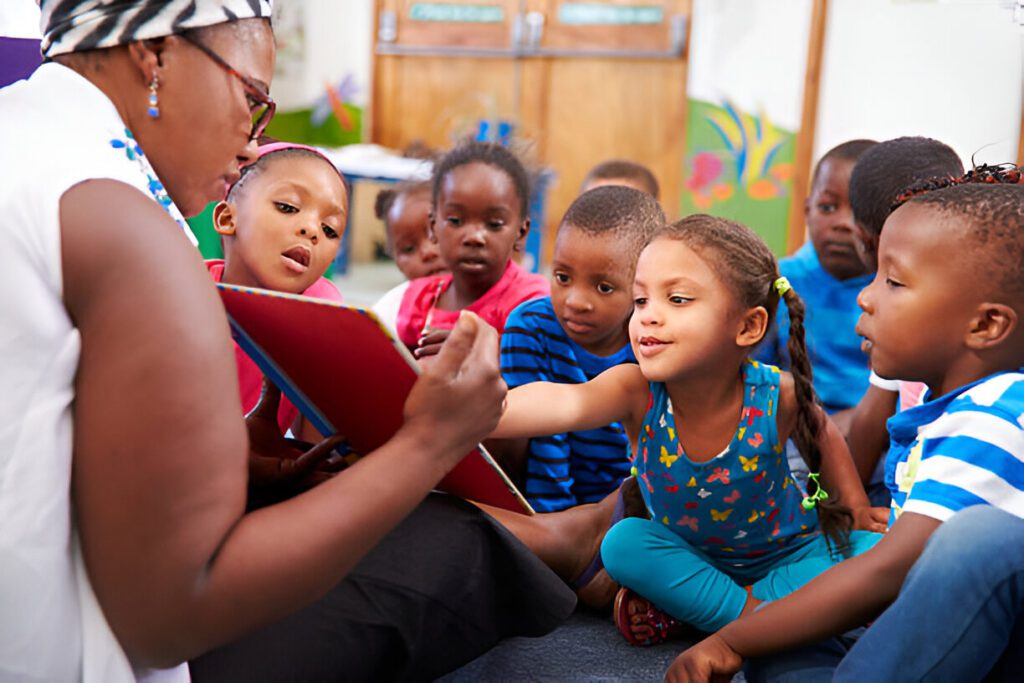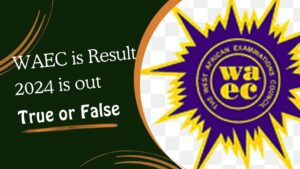This article explores the hidden aspects of the Nigerian school curriculum, its origins, gaps, and future prospects, so ensure to read the article to the end to see the hidden secrets that have beenunveiled in this article. Also, feel free to skip ahead using the table of contents.
The Nigerian school curriculum has evolved over the years, but it still holds certain inefficiencies and secrets that influence the quality of education in the country. While on the surface, the curriculum seems structured and comprehensive, a deeper dive reveals challenges such as outdated content, political influences, and poor implementation.
Introduction to the Nigerian School Curriculum
The Nigerian school curriculum is designed to provide education across various levels, starting from primary education to secondary and tertiary levels. It is an essential tool in shaping the intellectual and social growth of students.
The curriculum aims to prepare learners for personal development, citizenship, and employment. Over the years, there have been attempts to reform it to reflect contemporary needs, but several issues remain unaddressed.
The Historical Background of the Nigerian School Curriculum

The Nigerian school curriculum has deep historical roots, particularly influenced by British colonial education. Before independence, the curriculum was primarily designed to produce clerks and interpreters for the colonial administration, offering little emphasis on critical thinking or practical skills.
Post-independence reforms sought to address this imbalance, with several curriculum revisions aimed at making education more relevant to the needs of Nigerians. However, many of these changes were superficial, failing to truly transform the colonial legacy that still affects the current system.
Key Components of the Nigerian School Curriculum
The Nigerian school curriculum is structured into three main segments:
- Basic Education Curriculum (Primary and Junior Secondary): This covers foundational subjects such as English, mathematics, science, social studies, and local languages.
- Senior Secondary Education Curriculum: At this stage, students specialize in arts, science, or vocational tracks, focusing on more advanced subjects.
- Vocational and Technical Education: Aimed at equipping students with practical skills for direct entry into the workforce or further vocational training.
- Special Needs Education Curriculum: Designed to address the educational requirements of students with physical, learning, or developmental disabilities.
While these components appear well-rounded, they fall short in equipping students with critical skills needed in a modern, globally competitive society.
The Role of Government in Nigerian School Curriculum Development
The Nigerian government plays a pivotal role in curriculum development through the National Educational Research and Development Council (NERDC). The NERDC is responsible for formulating and reviewing the curriculum to meet national goals. However, the curriculum review process is often slow and heavily bureaucratic.
While some reforms are made in response to societal needs, they are usually reactive rather than proactive, with little emphasis on integrating modern skills like technology, digital literacy, and entrepreneurship.
Hidden Gaps in the Nigerian School Curriculum
Despite various revisions, the Nigerian curriculum harbors several hidden gaps:
Outdated Content
Many subjects, particularly in science and technology, contain outdated information, rendering Nigerian students ill-prepared for advancements in fields like artificial intelligence, robotics, and biotechnology.
Lack of Critical Thinking and Creativity
The curriculum prioritizes rote memorization over critical thinking and problem-solving, leaving students unable to apply theoretical knowledge in practical, real-world situations.
Limited Vocational Training
While vocational education is included, it is poorly funded and underemphasized, resulting in graduates who lack hands-on skills required for the workforce.
Gender and Social Inclusion Gaps
Gender biases and social inequalities are often reflected in textbooks and classroom practices, leaving female students and those from marginalized communities at a disadvantage.
Influence of Political and Economic Factors on the Nigerian School Curriculum
The curriculum development process is not immune to political and economic influences. Politicians often push for certain content to reflect their regional or ideological preferences, sometimes leading to the exclusion of critical topics like ethnic history or certain social issues.
Economic factors, particularly Nigeria’s budget constraints, also affect the curriculum. Funding shortfalls limit the ability to update textbooks, train teachers, and introduce new technologies in classrooms.
Moreover, regional disparities in the implementation of the curriculum have exacerbated educational inequalities, with wealthier states in the south having access to better resources than those in the north.
Nigerian School Curriculum Implementation Challenges

Even where curriculum content is adequate, implementation remains a significant challenge. Teachers are often poorly trained in the revised curriculum, and many schools lack the resources to effectively deliver it.
Key challenges include:
- Inadequate Teacher Training: Many teachers are not adequately trained to teach modern or updated curricula. They rely on outdated methods, further widening the gap between intended curriculum goals and actual classroom practices.
- Poor Infrastructure: Lack of basic educational facilities like classrooms, laboratories, and libraries hampers effective teaching and learning.
- Regional DisparitiesThere is a significant difference in how the curriculum is implemented across regions, with schools in rural areas often under-resourced compared to their urban counterparts.
The Hidden Agenda: Colonial Legacy in Curriculum Design
One of the least discussed aspects of the Nigerian curriculum is the persistence of colonial influences. Many of the subjects, especially in history and literature, still follow Eurocentric models that prioritize Western achievements over African history and culture.
This has led to a lack of emphasis on Nigerian history, indigenous knowledge systems, and cultural heritage in the curriculum. The subtle remnants of colonial education continue to shape Nigerian students’ worldview, undermining national identity and pride.
Impact of the Curriculum on Nigerian Students
The consequences of these hidden gaps are evident in the academic performance of Nigerian students. Many struggle with international exams and are often unprepared for the global job market. The curriculum’s lack of focus on critical thinking and problem-solving leaves students unable to adapt to rapidly changing industries.
Moreover, the neglect of practical skills and vocational training limits graduates’ employability, contributing to the country’s high unemployment rate. In addition, the underrepresentation of Nigerian culture in the curriculum weakens students’ sense of identity and nationalism.
International Comparisons: Nigerian School Curriculum vs. Global Standards
When compared to global standards, the Nigerian curriculum falls short in several areas. For instance:
African Counterparts
Countries like South Africa and Kenya have made significant strides in integrating 21st-century skills such as digital literacy and entrepreneurship into their curricula. Nigeria has lagged behind in this regard.
Western Curricula
Western education systems, such as those in Finland or the United States, emphasize student-centered learning, critical thinking, and creativity. Nigeria’s curriculum remains largely teacher-centered, focusing on rote learning rather than fostering innovation.
Calls for Nigerian School Curriculum Reform in Nigeria
Education experts and stakeholders have been calling for a comprehensive overhaul of the Nigerian curriculum. Key recommendations include:
Technological Integration
The curriculum should include courses on digital literacy, coding, and other technological skills that will prepare students for the digital economy.
Life Skills and Global Citizenship
The inclusion of life skills education, such as financial literacy, communication, and emotional intelligence, is essential. Moreover, global citizenship education should be emphasized to help students compete internationally.
Entrepreneurship and Innovation
The curriculum should foster entrepreneurship by teaching students how to think creatively, solve problems, and start businesses.
Future Prospects: Reimagining the Nigerian School Curriculum

The future of the Nigerian school curriculum lies in its ability to align with modern needs. To make this a reality, the following changes are necessary:
Decolonizing the Curriculum
Nigerian education must move away from the colonial legacy and prioritize indigenous knowledge, history, and culture. This will foster national pride and a sense of belonging among students.
21st Century Workforce Needs
The curriculum should be restructured to address the demands of the modern workforce, including integrating STEM education, digital literacy, and vocational skills.
Inclusive and Progressive Model
A more inclusive curriculum should accommodate diverse learning needs, including students with disabilities, and ensure gender equality in all subjects.
Conclusion
The Nigerian school curriculum, while seemingly comprehensive, has hidden secrets that have hindered its effectiveness in providing quality education. From outdated content to colonial legacies, the curriculum requires a thorough overhaul to meet the needs of modern Nigerian students.
By addressing these hidden gaps and aligning the curriculum with international best practices, Nigeria can build a more effective and inclusive educational system that prepares its students for a competitive global future.

